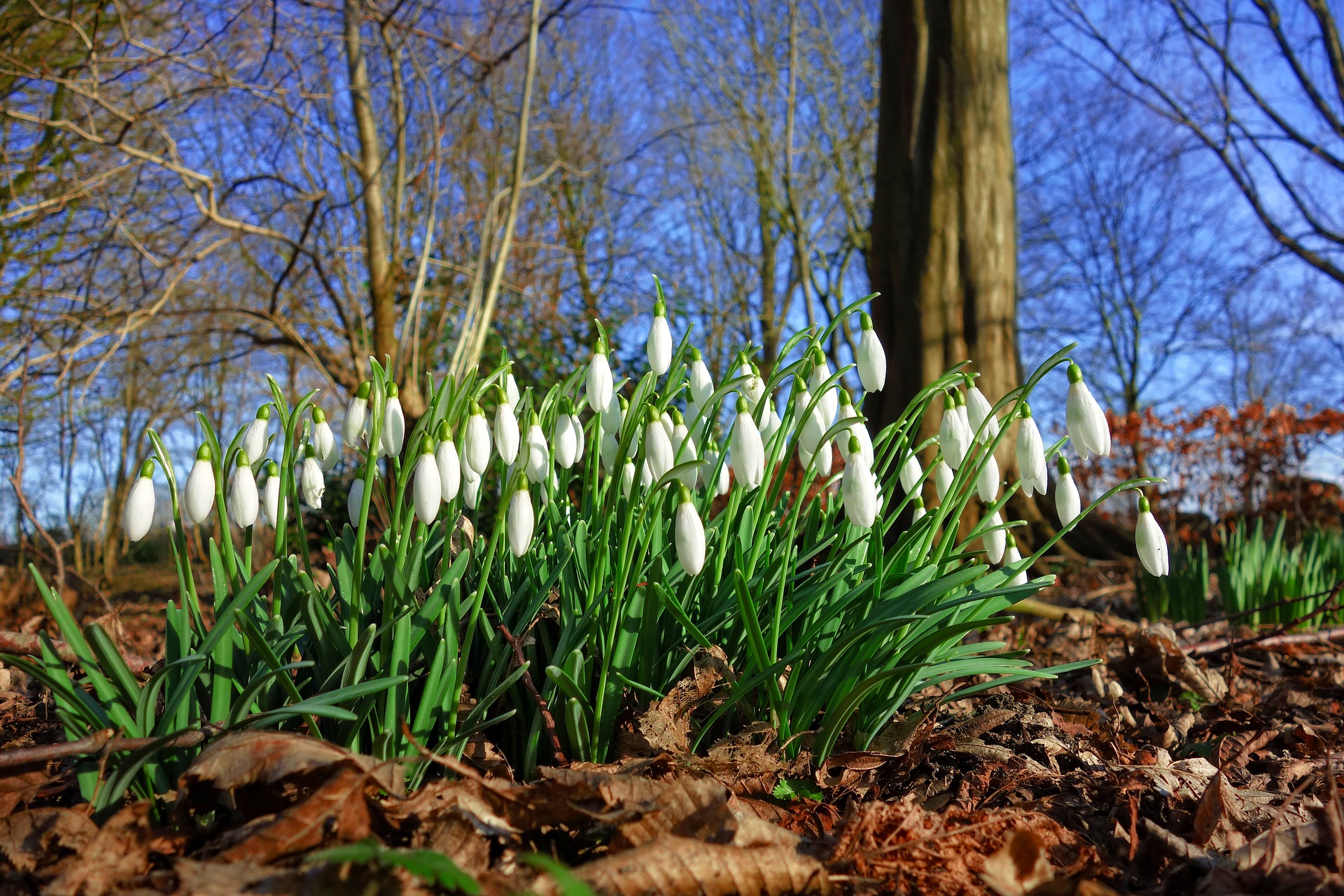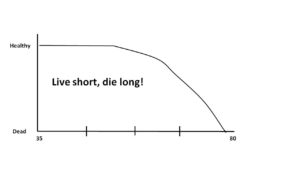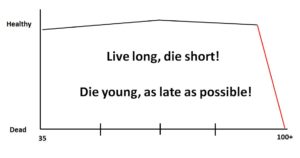Can We Become Age-agnostic? Do Your Part – Be a “Perennial”.

Image by Mabel Amber from Pixabay
The deeper I get sucked into this vortex of dialog about aging – older vs elder, saging versus aging, retirement versus rewirement, etc., etc., ad nauseum – the more I sense that we are creeping to the edge of an age-agnostic era.
What does that mean? It means that instead of our identity being tied to a number it will be tied to how we choose to pursue our life.
Show of hands: how many of you mid-lifers and beyond would find that refreshing?

Hey, Martha – I just met the coolest guy who retired from managing large medical practices. He’s now working with health clinics in our community to organize activities to get people walking on a regular basis to combat rampant obesity and Type 2 diabetes.
How old is he? I don’t know, Martha – I didn’t think to ask. I suppose he may be 65-ish or more, don’t you imagine? After all, he did say he recently retired. For all I know, he could be 80. I just know he was really charged up about this quest. Why do you need to know his age, Martha?
I’ve talked previously about having the choice to be older for longer or younger for longer as we move into and through the “third age” of life. Older for longer is the conventional perspective, but I believe it is beginning to reverse.
Chris Crowley and Dr. Henry Lodge got on that theme twelve years ago with their highly-transformational book “Younger Next Year” (What? You haven’t read it yet? Oh my!) blazing a trail saying that the lifestyle decisions you make can lift you out of a number-related category, away from the “live short, die long” group and into the “live long, die short” category.


The book’s message is timeless.
Be a Perennial
Gina Pell is an award-winning creative director and tech entrepreneur. In 2016, she coined the term “Perennials” to “define the idea that people may be in their prime much longer, in ways that defy traditional expectation about age.”
Ms. Pell, age 49 at this writing, describes Perennials as people who are:
“- ever-blooming, relevant people of all ages who know what’s happening in the world, stay current with technology and have friends of all ages. We get involved, stay curious, mentor others, and are passionate, compassionate, creative, confident, collaborative, global-minded risk takers.”
That kinda has younger-next-year and younger longer woven through it, don’t ya think?
Here’s a short video of Gina describing Perennials and how she came to coin the term:
How many in your similarly-aged circle of friends and family can you tag as a “perennial”?
Does it fit you?
Do you look at life as a time-line? Are you “so 20th-century” that you look at your birth year as relevant?
But,how could you not, with our cultural bent toward putting people in categories?
One-hundred years ago we had two categories: child-adult. Then demographers, statisticians, sociologists, marketers teamed up and we now have seven age-related categories: newborn, infancy, childhood, adolescence, young adult, middle age, and old age.
But that wasn’t enough. We decided we better break down that last category even further. So now we have four stages of old:
- 65–74 = young old
- 75–85 = middle old
- 85–95 = old old
- 95+ = frail old
Enough already!!! It’s bad enough that I have bunches of other archaic, irrelevant cultural beliefs that I’m still trying to shed that now I need to be dragging around “middle old” at 77.
Look at that first category of “old” and where it starts. Yep, that eight-decade old artificial finish line of 65 – the FDR-era irrelevant relic that we just can’t seem to shake.
Maybe we should listen up with Gina and forget the birth year.
Let’s ignore a youth-obsessed culture that says our societal irrelevancy begins in our mid-40’s.
Let’s stop getting wrapped around the axle and anxious about what others might think or say if we’re not retired at 65.
Let’s pay attention to models out there that get it. Like Fred Bartlit, 87-year old Colorado attorney I wrote about earlier who still maintains a robust legal practice, skis the back-bowls at Vail, is a gonzo-weight lifter, just wrote a book about how to avoid frailty, maintains a website providing resources that combat aging and refuses to acknowledge the number on his birth certificate.
Fred is one of many that we can emulate.
 Let’s ignore the “OK, Boomer” fad and actively engage and listen to these youngsters with an open mind and an understanding that we need them as much as they need us.
Let’s ignore the “OK, Boomer” fad and actively engage and listen to these youngsters with an open mind and an understanding that we need them as much as they need us.
Be the one that will set the example that your birth date is irrelevant.
Be that ever-blooming Perennial.
////////////////
Share your thoughts below with a comment – I appreciate your feedback.
Also, if you haven’t, you can subscribe to this weekly article at www.makeagingwork.com. I publish Monday of every week. I’ll send over a free ebook with your subscription: “Achieve Your Full Life Potential: Five Easy Steps to Living Longer, Healthier, and With More Purpose.”





Hi Gary, One of your best posts. It does more to inspire folks to take action for themselves, not just inform. Looked at from an individual perspective; what will I do about me and my choices, it is spot on target. Looked at from a group and human thought perspective I believe you may have conflated the two things, the individual and the group view. One of the great genius things human can do is put stuff into categories to work with them and make progress. Science does it all the time as do all humans. The categories are never totally true, accurate, complete, enduring or fair; yet they are necessary. For awake and mindful folks of any age we know we cannot be put into boxes so we always have a choice to just look at the categories and choose which we will embrace. Generally, the older we get the better we are at making choices for our individual path and just moving on with it. Don’t fight the categories, just live your own life. Thanks for your work
I like this article. 65 is actually the new 40. If we are living until 85 and 95 years old. Then why do we want to retire at 65? If you love what you do, why retire at all? Instead of seeing ourselves as old and dreaming of retirement, we should be setting an example for the younger people about finding a career that we love and do it until we die. I cannot imagine ever stopping what I do for a career, ever! My career and marriage keeps me younger.
Thanks for another informative site. Where else could I get that kind of info written in such a perfect way? I have a project that I am just now working on, and I’ve been on the look out for such information.
Dear makeagingwork.com owner, You always provide valuable information.
To the makeagingwork.com admin, Good work!
Hi makeagingwork.com admin, Thanks for the valuable information!
Hi makeagingwork.com admin, Keep sharing your knowledge!
Hello makeagingwork.com administrator, Thanks for the post!
Hello makeagingwork.com webmaster, You always provide great insights.
Dear makeagingwork.com webmaster, You always provide great information and insights.
Hello makeagingwork.com admin, You always provide great examples and real-world applications.
Hi makeagingwork.com admin, Your posts are always well-supported and evidence-based.
To the makeagingwork.com webmaster, Your posts are always well written and informative.
To the makeagingwork.com admin, Thanks for the comprehensive post!
To the makeagingwork.com webmaster, Great job!